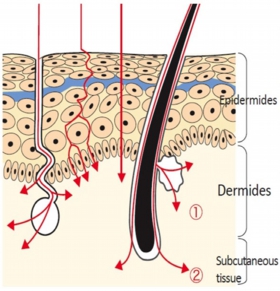

Most shampoos are too clarifying and will leave your hair dry and stripped. Products with those types of chemicals are a big NO NO as they pull essential moisture from your hair.įor starters, think carefully about the shampoo you use for your hair. It’s best to avoid hair products that have sulfates, parabens, silicones, and sodium laureth sulfates. Not all products work well for high porosity hair, so you have to be picky. The high amount of protein found in eggs will give extra love and strength to your strands. You can also use eggs to make a DIY mask. Look for conditioners with keratin, wheat, or silk protein. We recommend frequently using a protein conditioner or a protein mask, like once a week or once every two weeks. Adding protein will reduce breakage, make your hair thicker and improve the elasticity of your hair." "High porosity hair has many gaps in the hair shaft because the cuticles are raised. This is what natural hair blogger Madisen had to say about it: As high porosity hair is fragile and subject to breakage, incorporating protein will help to fortify it. Protein treatments are also important to add to your routine, when you have highly porous hair. Argan oil, jojoba oil, and other oil blends help to seal moisture." Protein Treatments "Oils are the best way to lock moisture into your hair. Angela Stevens, celebrity hairstylist said about this:

Using liquid or leave-in conditioner, cream and oil (LCO) in that order, is the best way to apply products to high porosity hair. You can use one of your favourite oils or conditioners to help give you a hand. To prevent your hair knotting up and breaking when it comes in contact with water, make sure that your hair is fully detangled before you step into the shower. High porosity hair strands have an open hair shaft and tangle quickly. If you have high porosity hair, pre-pooing and finger detangling are your best friends.
#Does hair absorb water how to#
If you’ve been wondering how to grow your high porosity hair or fix it, then the best thing you can do is learn how to care for it. However, if your hair floats in the glass for a lengthy period of time before sinking, you probably have low porosity hair. If your hair sinks to the middle of the cup and then gradually descends to the bottom, you have normal porosity hair. If your hair sinks very quickly to the bottom, you have high porosity hair. The most popular way to confirm if you have high porosity hair is to do a strand test on clean hair. All you have to do is take a strand of your hair and drop it in a glass of water. How To Tell If You Have High Porosity Hair One way to be sure of your hair porosity is by doing a strand test. Many sources say that hair that dries quickly is a sign of high porosity, however, some sources say the exact opposite. *There are conflicting views on how high porosity hair dries. High porosity hair has specific characteristics such as : Processing your hair or styling your hair like straightening, blow-drying, bleaching or using other chemical applications can all lead to high porosity hair. High hair porosity may be due to genes or specific hair treatments. When the cuticles, which are the outermost layer of the hair, are too far apart, your hair is highly porous. The reason high porosity hair behaves that way has to do with the structure of the hair strand. High porosity hair is hair that attracts and loses moisture easily. If you have high porosity hair, it means that water, oils, and other types of products can be easily absorbed by your hair, but because your hair is highly porous, it may not be able to retain moisture as well as other types of hair. In this article, we’ll be telling you everything you need to know about high porosity hair. For instance, you’ll be able to use products and techniques that are best for your hair’s porosity.

Knowing what porosity your hair is can make a huge difference in how you care for it. Your hair either has normal porosity, low porosity or high porosity. Do you know what it actually means? Porosity, as it relates to hair, refers to how easily hair absorbs and retains moisture. You might have heard the term “porosity” floating around in the natural hair community.


 0 kommentar(er)
0 kommentar(er)
